Nigerian Ports: CLTC Offers Synergized Ambience For Safety Training
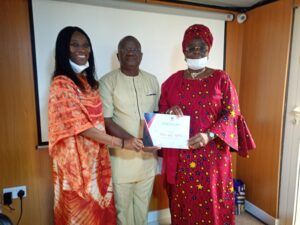
By Kenneth Jukpor
Maritime is regarded as a serious business globally and requires top-notch training for operators and all stakeholders to ensure the sector plays its role in economic development and trade facilitation.
Administratively, the manager of a port, a terminal or shipping line cannot be everywhere all the time to ensure staff carry out their tasks correctly and responsibly. Instead the manager develops and communicates policies, and direct staff to read and adhere to them. The availability of policies and requisite training help to decrease the amount of direct supervision by the manager, and at the same time increases the efficiency and safety of processes at the ports.
In Nigeria, there seems to be a gap in training and understanding the significance of certain safety precautions and protocols at the ports, onboard vessels or within the port environs. This lacuna stems from the fact that government agencies, terminal operators, shipping lines, freight forwarders and other stakeholders haven’t been able to converge for the purpose of learning together the importance of certain policies and protocols in the maritime sector.
Last week, Confluence Logistics and Transport Consults Limited (CLTC) held a two-day training programme that provided a platform for synergy as port operators from various backgrounds learnt about safety, understanding why and how to operate in an ideal port environment.
Our correspondent who attended the training observed that the platform availed operators a rare privilege to see safety issues from the prism of the regulators while comparing the practices at Nigerian ports to those in more developed countries to learn best practices.
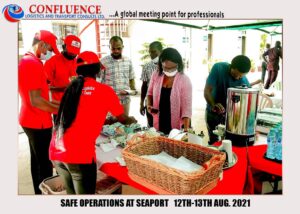
Owing to the COVID-19 pandemic and consequent protocols, the event organizers could only limit onsite delegates to just twenty, but this wouldn’t be a downside as a viable online platform was provided for other delegates to participate.
Speaking with MMS Plus on the sidelines of the event, the Port Manager, Lagos Ports Complex (LPC), Nigerian Ports Authority (NPA), Mrs. Olufunmilayo Olotu, stressed that port regulators usually have meetings with operators only to deliberate on issues of common interests.
“This is a novel and commendable initiative for us to all have an understanding of issues from other people’s point of view in a learning environment. It is a unique opportunity because we have all been working in silos. This is a platform where we have the terminal operators, shipping lines, barge operators and regulators coming together in one class to learn together. I can assure you that the caliber of people who came for this training are those who still have a lot of years in the industry. When they come together like this, they can communicate the lessons they learnt to their superiors. As a superior that has come here, I can also talk to my colleagues across the industry and not just those at the NPA,” Olotu said.
While commending Hajia Aisha Ali-Ibrahim, the Managing Director of CLTC, Olotu maintained that knowledge is never a waste and encouraged the participants not to see life in just monetary aspects because training is never enough.
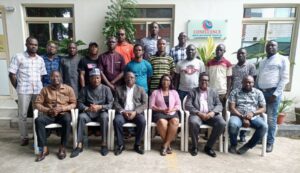
“I’m glad that most of the Port Managers sent delegates from various locations because we’re going to be advocates of this novel initiative and give Madam Aisha the necessary support. As the Founder of Women in Logistics and Transport (WiLAT), you can’t take away the fact that Hajia Aisha is a visioner. She had a vision for WiLAT and today it has spread to over 30 countries and we are still counting. This happened because she had a vision and today she has come with another unique vision. Whatever comes out of this training is going to shake the industry because most of the operators are here,” the LPC Manager said.
Also speaking at the event, a former Port Manager, Delta Ports, Nigerian Ports Authority (NPA), Mr. Odewole Samuel described the training programme as a timely and commendable one that would prioritize safety among port workers and port users.
“This training is germane to ensure port workers, service providers and port users operate cognizance of the risks and in a manner to limit these risks in the port environment. Safety should always be prioritized in whatever we do and this is particularly important in port operations. To attain hitch-free operations at the ports, there is a need to learn and retrain on safety. I’m happy that CLTC has taken the responsibility of this training,” he said.
According to Odewole, adequate training on safety at the ports would guarantee safe port operations, an increase in activities at the ports, reduction in turnaround time for vessels and increase the revenue generated at the ports.
“I want to seize this opportunity to advise companies involved in port operations as well as government agencies to train their members of staff on safety because organizations can’t achieve much in an environment that isn’t safe. Training on safety is money well spent for any organization,” he added.
One of the facilitators at the training, Mr. Victor Ogini described the choice of safety as the area for training as germane, noting that any port where cargoes aren’t safe and the port users are exposed to dangers should not be categorized as efficient.
“Nigeria should have efficient ports where the risks of accidents are reduced to the barest minimum, if it can’t be totally eliminated. This is why we are taking participants of this training through several aspects of port operations; from the equipments being used, to the separation of humans, plants and equipments at the ports, use of signage and other aspects,” he said.
Ogini, who is also a principal partner at the CLTC, itemized the handling of RoRo vessels as one of the problematic operations at Nigerian ports and advised operators to learn how to adequately handle such operations in a safe manner.
He encouraged NPA to provide proper lighting within the ports as part of efforts to ensure seamless operations at night and reduce the possibility of accidents from poorly lit port environment.
Another resource person at the programme, Mr. Celestine Opara lamented that the multiplicity of tankfarms around the Tin Can and Apapa port environment poses a great danger to the lives of residents and businesspersons in the area.
Opara, who is a former Commander of Fire Service at LPC, NPA, encouraged tankfarm owners and regulators to speedily begin to relocate the tankfarms, even though it would require collosal sums.
“The regulators of tankfarms should be concerned about the safety of the nation first before their personal gains or satisfying their friends. This tankfarm situation around Lagos ports is really appalling,” he queried.
He, however, encouraged organizations in the port environment to have an emergency response plan and organize regular drills until a fast response can be attained within three minutes during fire outbreaks.
Opara also lectured the participants on handling dangerous goods, documentation processes for dangerous goods and the safety measures for workers exposed to radiation which could lead to cancer if not properly managed.
On her part, the Chief Executive Officer/ Managing Director of CLTC, Hajia Aisha Ali-Ibrahim stressed that maritime is an international interface that requires global standards and CLTC is keen on ensuring Nigerian ports attain such standards irrespective of the nation’s unique peculiarities.
“We have to be well-informed about a developed port environment where we have everything working well and meet global best standards. We expect to have the participation of maritime agencies at our trainings because other stakeholders need to understand where government agencies are coming from in terms of policies and expectations. At such trainings, we also show to the various stakeholders what is expected of them as players in the industry,” she said.
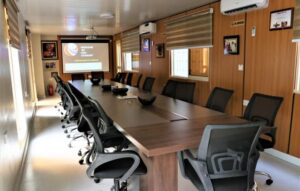
According to her, all port users that legitimately use the ports have a role to play and they must understand the signages and other protocols.
“At CLTC, having been in the port industry for over 35 years because I started my NYSC at Nigeria Customs Service (NCS), we can deliver top-notch training on these issues to our clients. You can see that the facilitators are experts in whatever way you want to assess them. They have the qualifications and experience having been in the operations departments at NPA for decades. We believe that with this training we should be able to drive home good information that would enhance operations at the ports. Some people are just posted to the ports by their agencies and don’t know the basics. We are here and strategically positioned to solve this issue of training. Our clients are also guaranteed good value for the money they pay,” she stated.
One of the participants, Rosemary Orebiyi described the learning experience as a wonderful one, revealing that she had learnt valuable tips about safety and how best to handle specific tasks at the ports and onboard vessels.
Orebiyi, who was also the class governor of the participants, expressed appreciation on behalf of the trainees and assured that the knowledge would be gainfully deployed to make port operations safer and more efficient.

CLTC has a serene and unique learning environment situated in the heart of Apapa which makes it a rare learning infrastructure for port operators, service providers and government agencies. Port stakeholders are encouraged to take advantage of this facility as well as the dynamic learning platforms with categories for top executives as well as provisions for other cadre of employees.




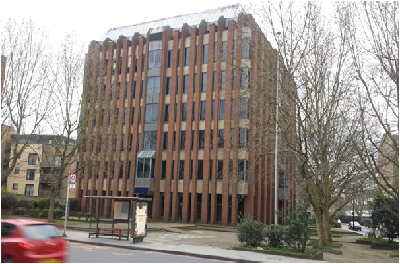



One Comment